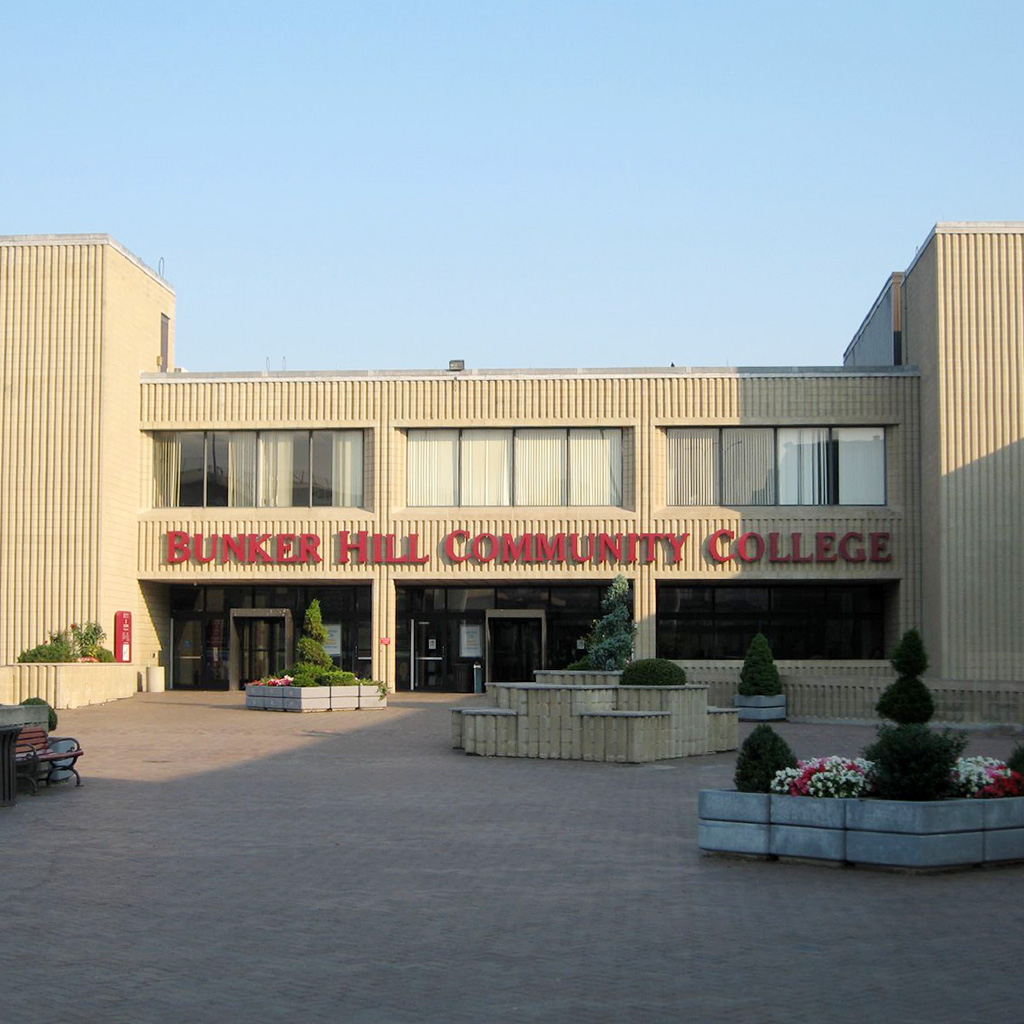Cambridge Promise program will fund a degree from Bunker Hill for up to 30 CRLS grads a year

Happy grads at Bunker Hill Community College’s June 2022 commencement exercises. (Photo: Bunker Hill Community College via Facebook)
As many as 30 students will get a tuition-free education at Bunker Hill Community College in what is expected to be the first year of a permanent program. Cambridge Promise got its launch Sept. 11 as the Cambridge City Council accepted $25,000 donations from Harvard and MIT as starter funding.
Approximately 8 out of every 10 adults in Cambridge hold an associate’s degree or higher, but stark gaps persist across lines of race and ethnicity, supporters say. Eighty percent of white and Asian residents in Cambridge hold bachelor’s degrees compared with 60 percent of Latinx and 38 percent of African American adults, according to a proof-of-concept brochure.
There’s a gap in college enrollment that roughly doubles to 20 points when looking at six-year college completion rates, supporters say, but Cambridge Promise can make it easier to get through to graduation with support and a scholarship fund.
A year at Bunker Hill costs $6,000 on average; Cambridge Promise will cover tuition and fees for the academic year and school-related expenses not covered by a student’s Pell Grant and outside scholarships – starting with 21 students from Cambridge Rindge and Latin School pursuing an associate’s degree. Each gets a college success coach through the city’s College Success Initiative and a $250 stipend each semester.
Several CSI college coaches “have mentioned the lack of scholarship opportunities available for students, causing students to drop out and not obtain a degree,” the brochure says.
“Cambridge Promise really came from a multitude of ideas of how to support young people who have an interest in going to college and pursuing some level of higher education but struggle in meeting the gap,” said Ayesha Wilson, a School Committee member. “The partnership with CSI really made sense because they already have two college success coaches at Bunker Hill who support our Cambridge Rindge and Latin School graduates and make sure they are successful.”
The coaches play a significant role in students’ success in college, according to Tawanya Garrett, the director of the College Success Initiative, as they support students in and out of the classroom. “We really like to see ourselves as being that great support that sticks with our students. We want to see our students get to that finish line, which is ultimately earning that degree,” she said.
Getting started
The program allows students to earn an associate’s degree over the course of three years, which is how long it takes students on average to earn a traditionally two-year degree while juggling other demands on their time. It’s modeled after the Boston Tuition-Free Community College Fund, which provides an annual cohort of students with free education at a number of local community colleges, BHCC included.
“We spoke to a lot of different kinds of these programs, including Boston’s tuition-free program, so we really didn’t have to start from the beginning,” Mayor Sumbul Siddiqui said in an interview.
Bunker Hill, which has participated in the Boston program for several years, became “a wonderful partner in helping us decide where we should start,” said Ammarah Rehman, director of policy and education in the mayor’s office.
Room for more
The pilot is accessible for Cambridge residents participating in the College Success Initiative’s coaching program, who have received their high school credential from Cambridge Rindge and Latin School, are enrolled at Bunker Hill Community College and are low- to moderate-income earners.
With 21 students now taking part in the program, there’s room for nine more.
If a current Bunker Hill student meets the other eligibility requirements, they would still be able to receive support. “We can support up to 30 students,” Garrett said. “The initial hope was that we would have that many and we could meet that goal.”
Cambridge Promise hopes to triple in size by 2025 to sustain up to 90 students at one time. That means funding will have to double by next year and increase by $50,000 the year after to introduce cohorts two and three.
Funding and growth
Getting starter donations from Harvard University and the Massachusetts Institute of Technology was “kind of a no-brainer,” Wilson said, “in support of young people who would like to seek higher education and understand financially that it could be a large barrier.”
But Caroline Hunter, a School Committee member, noted that the program “requires much funding beyond the initial funding to be sustainable and to support more students. We hope to see donations from a larger base of support and to appeal to our larger corporate community and any donors who are interested in believing in this concept and idea.”
Last month, Gov. Maura Healey announced the MassReconnect program, a tuition-free community college program for adults 25 and older. For at least the first year of its implementation, Cambridge Promise and MassReconnect will operate separately, but Garrett said there’s a chance the program could expand to serve Cambridge residents within that age group as well.
“CSI is already working with students who are over the age of 25,” she said. “Who knows what the future holds, if that is possible for us down the line. That would be awesome, but definitely for the pilot year, we’re sticking with this very specific population.”




What a great program. Kudo’s to all involved.
How about a voluntary contribution program on our tax bills to help with funding?